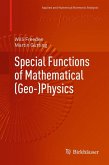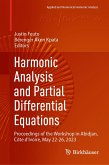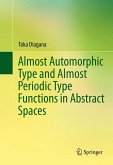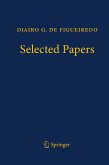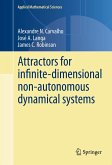Two volumes span the years from 1952 up until 1999, and cover many varying topics, from functional analysis, partial differential equations, and numerical methods to conservation laws, integrable systems and scattering theory. After each paper, or collection of papers, is a commentary placing the paper in context and where relevant discussing more recent developments. Many of the papers in these volumes have become classics and should be read by any serious student of these topics. In terms of insight, depth, and breadth, Lax has few equals. The reader of this selecta will quickly appreciate his brilliance as well as his masterful touch. Having this collection of papers in one place allows one to follow the evolution of his ideas and mathematical interests and to appreciate how many of these papers initiated topics that developed lives of their own.
Dieser Download kann aus rechtlichen Gründen nur mit Rechnungsadresse in A, B, BG, CY, CZ, D, DK, EW, E, FIN, F, GR, HR, H, IRL, I, LT, L, LR, M, NL, PL, P, R, S, SLO, SK ausgeliefert werden.
"This is a collection of papers by one of the great mathematicians of our time. ... The depth and wide range covered by Lax's research contributions illustrate his broad view of mathematical analysis as a whole. The editors ... have done an excellent job: they didn't just collect some papers 'at random', but also explain, in detailed commentaries, the contents and importance of the included publications at the end of each section." (Jürgen Appell, Zentralblatt MATH, Vol. 1087, 2006)
"Since Peter Lax was chosen as the recipient of the 2005 Abel Prize, it's hardly necessary to say that his work is important. Libraries should consider his Selected Papers an essential acquisition. This first volume collects papers on partial differential equations, difference equations approximating PDEs, hyperbolic systems of conservation laws, and integrable systems." (Fernando Q. Gouvêa, MathDL, October, 2005)



